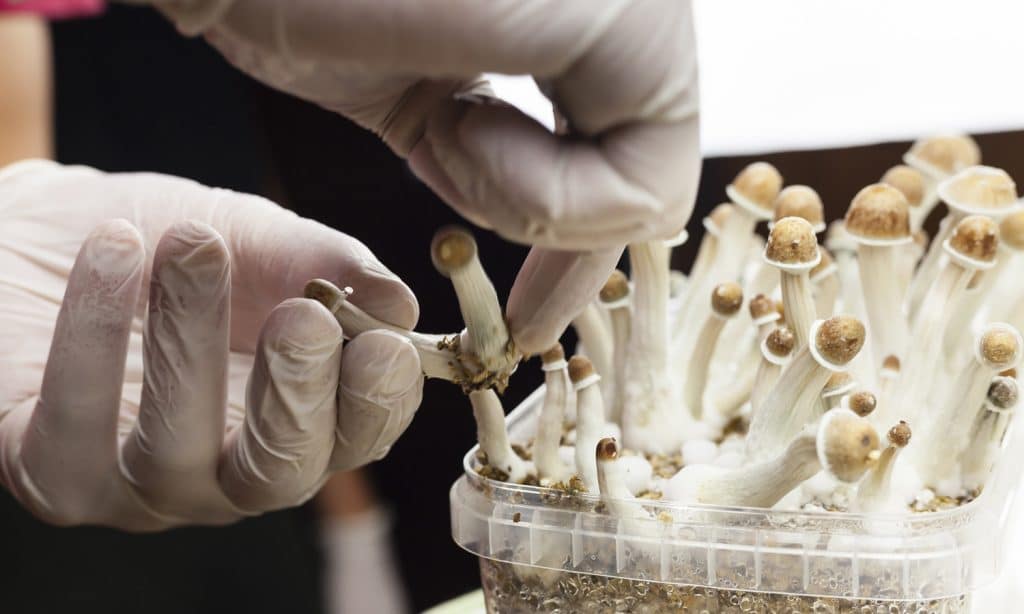“This rigorous study is an important first demonstration that the simultaneous administration of psilocybin is worth exploring further,” said the study’s lead author.
A new study is shedding light on the safety profile of psilocybin, the active ingredient in so-called “magic mushrooms.”
Published on Tuesday in the Journal of Psychopharmacology, the study looks at the effects of psilocybin in the cognitive and emotional functions of healthy volunteers. While psilocybin is known for its ability to reduce depression in the long term, its effects on cognitive function remain understudied.

The research was undertaken using COMP360, a proprietary version of psilocybin developed by Compass Pathways. The company recently finished the largest phase 2 trial on psilocybin to date, with very positive results and is now headed to phase 3.
Conducted at King’s College London in 2019, the study showed there were no short or long-term detrimental effects on cognitive functioning or emotional processing with psilocybin.
The Details
The study looked at the effects of two doses of COMP360 psilocybin compared with placebo in 89 healthy male and female adult volunteers. Participants received either a 10mg dose, a 25mg dose or a placebo.
RELATED: DEA Should Allow Psilocybin Therapy For Terminally Ill, Says Congressmen
The drug was administered simultaneously to up to six participants, who all received one-to-one psychological support from trained therapists throughout the session, which lasted about six hours. The study involved a 12 week follow-up period.
The Results
There were no serious adverse events and COMP360 psilocybin was found to be well-tolerated with no clinically-relevant negative effects on cognitive function.
RELATED: What Can Cannabis Legalization Tell Us About Psychedelics?
“This rigorous study is an important first demonstration that the simultaneous administration of psilocybin is worth exploring further,” said Dr. James Rucker, the study’s lead author. “If we think about how psilocybin therapy (if approved) may be delivered in the future, it’s important to demonstrate the feasibility and the safety of giving it to more than one person at the same time, so we can think about how we scale the treatment up.”
This article originally appeared on Benzinga and has been reposted with permission.


